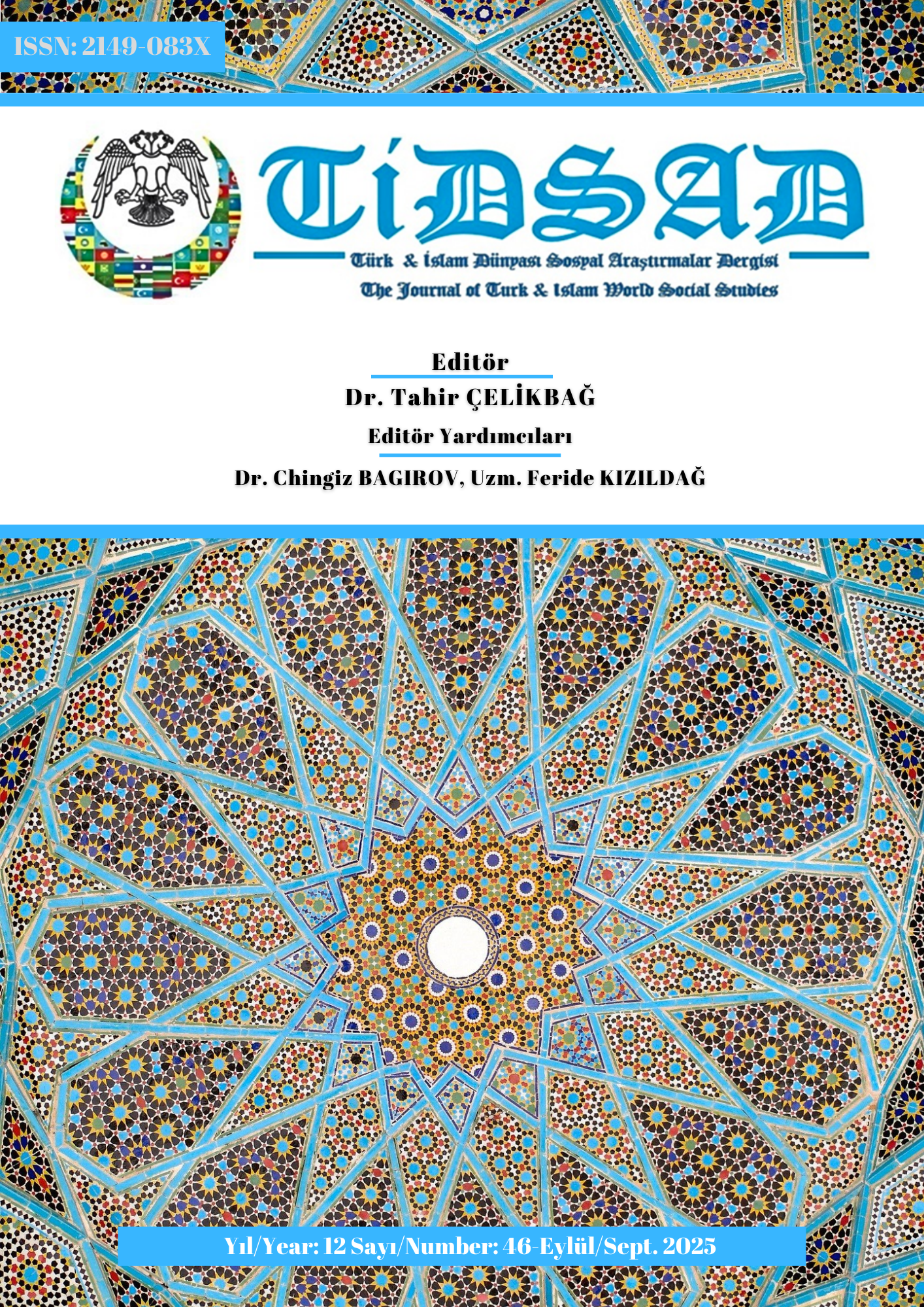Author :
Abstract
Bu çalışmanın amacı, teamül, âdet, örf ve töre gibi toplumsal normların Türk hukuk sistemi ile olan karşılıklı ve dinamik ilişkisini disiplinlerarası bir perspektifle analiz etmektir. Temel argüman, hukukun toplumdan bağımsız soyut bir olgu olmayıp, aksine bu yazılı olmayan kurallardan beslenen ve onlarla sürekli etkileşim halinde dönüşen bir mekanizma olduğudur. Bu çalışma, nitel bir araştırma yaklaşımıyla yürütülmüştür. Türk hukuk sistemine ilişkin temel kanun metinleri, Yargıtay’ın ilgili dairelerinden seçilmiş kararlar ve konuya dair akademik kaynaklar incelenmiştir. Hukuki metinler, toplumsal normlarla ilişkili kavram ve düzenlemeler açısından; Yargıtay kararları ise normların hukuki yorum ve uygulamadaki yansımaları bakımından değerlendirilmiştir. Akademik kaynaklar, kavramsal çerçeveyi desteklemek ve bulguların yorumlanmasına katkı sağlamak amacıyla kullanılmıştır. Disiplinlerarası bir metotla yürütülen bu inceleme, hukuk ile sosyal-kültürel hayat arasındaki etkileşimi derinlemesine anlama imkânı sunmaktadır. Araştırmanın bulguları, toplumsal normların kanun boşluklarını doldurmada ve yasal düzenlemelere zemin hazırlamada aktif bir rol oynadığını ortaya koymaktadır. Yargıtay'ın düğün takıları ve nişan hediyelerine ilişkin içtihatları, hukukun toplumsal değişimi dikkate alarak yerleşik normları nasıl yeniden yorumladığının somut örnekleridir. Diğer yandan, miras hukukunda olduğu gibi, hukukun temel ilkeleriyle açıkça çatışan teamüllerin ise bir dayanak olarak dahi kullanılamayacağı ve hukuken geçersiz kılındığı görülmektedir. Sonuç olarak, bu araştırma hukukun durağan bir yapı olmadığını; toplumsal-kültürel kodlardan ve pratiklerden beslenen, onları dönüştüren ve onlarla birlikte evrilen yaşayan bir olgu olduğunu göstermektedir. Bu karşılıklı etkileşim, normların hukuka kaynaklık etme potansiyelini açıkça ortaya koyarken, hukukun dönüşümünü anlamada toplumsal normların kritik önemini bir kez daha teyit etmektedir.
Keywords
Abstract
The aim of this study is to analyze, from an interdisciplinary perspective, the reciprocal and dynamic relationship between social norms—such as custom, usage, tradition, and convention—and the Turkish legal system. The central argument is that law is not an abstract phenomenon independent of society; rather, it is a mechanism nourished by these unwritten rules and constantly transformed through interaction with them. This study was conducted using a qualitative research approach. Fundamental legal texts of the Turkish legal system, selected decisions from relevant chambers of the Court of Cassation, and academic sources on the subject were examined. Legal texts were considered in terms of concepts and regulations related to social norms, while the Court of Cassation’s decisions were evaluated for how such norms are interpreted and applied. Academic sources were used to support the conceptual framework and to contribute to the interpretation of the findings. Through this interdisciplinary approach, the study offers an in-depth understanding of the interaction between law and socio-cultural life. The findings reveal that social norms play an active role in filling gaps in legislation and in laying the groundwork for new regulations. The Court of Cassation’s decisions on matters such as wedding gifts and engagement presents are concrete examples of how established norms are reinterpreted in light of social change. On the other hand, in areas such as inheritance, customs that clearly conflict with the fundamental principles of law cannot be used as a basis and are rendered legally invalid. In conclusion, the study demonstrates that law is not a static structure but a living phenomenon—one that is shaped by socio-cultural codes and practices, transforms them in turn, and evolves alongside them. This mutual interaction highlights the potential of norms to serve as a source for law, while reaffirming their critical importance in understanding the transformation of legal systems.





